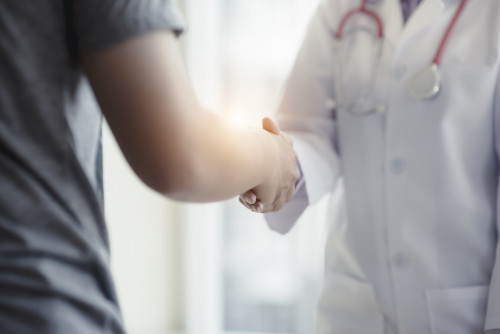Understanding Fertility Issues That Lead to Using an Egg Donor

When does the need for an Egg Donor arise? Egg donation is a resource for LGBT couples, single parents, and those who are unable to build their family on their own without the use of Egg Donors either due to a specific fertility diagnosis or unsuccessful fertility treatment.
When egg donation is proposed due to the latter situation(s), it can come as a surprise for those who may have expected to conceive on their own. Understanding those fertility issues that lead to the use of an Egg Donor is an important part of the process for those transitioning to third-party reproductive treatment. We’ve outlined some of the top fertility conditions that lead to Egg Donor use below.
Egg quality
A woman’s fertility peaks around age 25 and then slowly declines over time. This decline starts to increase in speed after age 35, so the quality and quantity of a woman’s eggs can be impacted by her age. This is probably not news to most women, who, thanks to popular culture, are probably used to hearing about the impact age has on fertility. If your egg quality/quantity is poor (can be due to factors outside of age), then a Donor may be needed in order for conception to be possible.
Premature menopause
When premature or early menopause occurs, it means that a woman is no longer able to conceive because her period has stopped. If menstruation is not occurring, then pregnancy is no longer possible. Premature members tend to run in families, so there can be a situation where a woman’s mother gave birth to her at a younger age so she was able to conceive prior to premature menopause, but her daughter had no desire to achieve a pregnancy until she was older when premature menopause takes place.
Endometriosis
An often overlooked/misdiagnosed condition, endometriosis occurs when tissue that would normally be located inside the uterus is found on the outside. The condition is known to impair fertility, making it difficult to conceive without reproductive care and/or an Egg Donor.
Previous cancer treatment
Cancer treatment like radiation and chemotherapy can have a negative impact on fertility. Women are encouraged to consider egg freezing prior to starting treatment, but this may not have been possible or a presented option for women who underwent cancer treatment in the last few decades or when they were children.
Genetic disorders
Certain genetic disorders can be carried down familial lines, specifically the maternal line. Although genetic screening is possible, there may be certain conditions in which an Egg Donor is preferred in order to ensure that the disease is not passed on to the next generation.
If you have questions about egg donation, including finding an Egg Donor, please contact our case managers today.